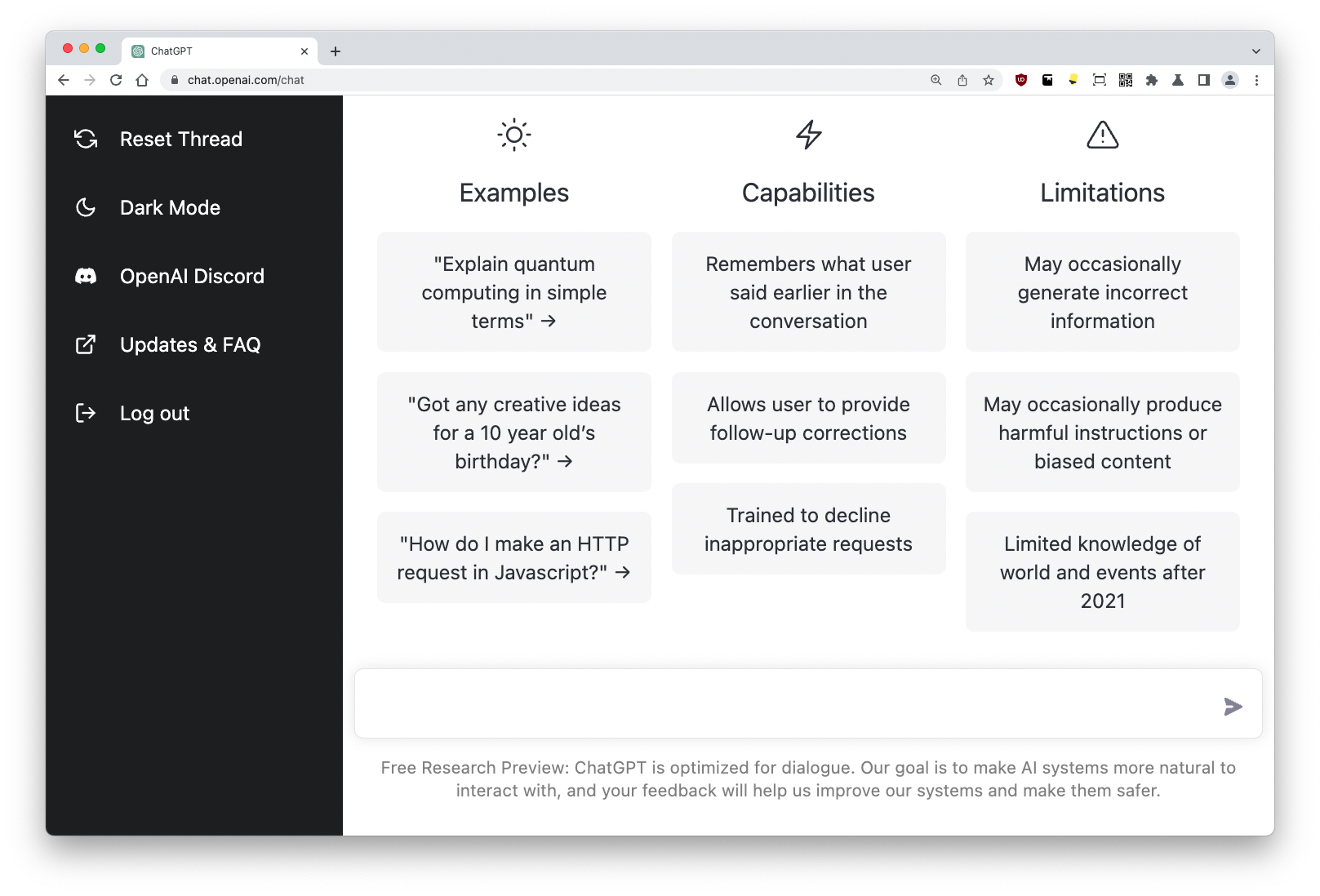Understanding ChatGPT's New AI Coding Agent: A Comprehensive Guide

Table of Contents
H2: Key Features and Capabilities of ChatGPT's AI Coding Agent
ChatGPT's AI coding agent offers a suite of powerful features designed to streamline the coding process. Its ability to generate code, debug existing projects, and optimize for efficiency makes it an invaluable asset for programmers of all skill levels.
H3: Code Generation
This AI agent can generate code in a wide range of programming languages, including Python, JavaScript, C++, Java, and more. This dramatically accelerates development time, especially for repetitive tasks.
- Examples of code generation tasks: Generating functions to perform specific operations, creating classes with defined attributes and methods, scripting automation tasks, and building basic web applications.
- Framework and library support: The agent demonstrates proficiency with popular frameworks like React, Angular, and Vue.js, and libraries such as TensorFlow and PyTorch, allowing for efficient development of complex applications.
- Speed and Efficiency: The speed at which the AI generates code is significantly faster than manual coding, freeing up developers to focus on more complex aspects of the project. This increased efficiency translates to faster project completion times and reduced development costs.
H3: Debugging and Error Correction
Identifying and fixing bugs is a crucial, time-consuming part of software development. ChatGPT's AI coding agent assists in this process by analyzing code for errors and suggesting solutions.
- Examples of debugging scenarios: The agent can pinpoint syntax errors, logical errors leading to incorrect outputs, and runtime errors causing crashes.
- Suggested Fixes and Explanations: It doesn't just identify problems; it provides detailed explanations of the errors and suggests potential fixes, improving a developer's understanding.
- IDE Integration: While not yet fully integrated with all IDEs, the potential for seamless integration with popular platforms like VS Code and IntelliJ promises further enhancements in developer workflow.
H3: Code Optimization and Refactoring
The AI agent can analyze existing code and suggest improvements to readability, efficiency, and maintainability. This ensures that the final product is not only functional but also elegant and scalable.
- Examples of code optimization techniques: Removing redundant code, improving algorithm efficiency to reduce processing time, and restructuring code for better readability.
- Best Practices and Coding Standards: The agent is trained on a vast dataset of high-quality code, allowing it to suggest best practices and adhere to established coding standards.
- Reduced Development Time and Improved Code Quality: Optimized code leads to reduced development time, improved performance, and easier maintenance, making the project more robust and scalable.
H2: How to Effectively Utilize ChatGPT's AI Coding Agent
To fully harness the power of ChatGPT's AI coding agent, understanding how to interact with it effectively is crucial.
H3: Prompt Engineering
The quality of the output directly depends on the quality of the input. Crafting effective prompts is key to obtaining the desired results.
- Examples of well-structured prompts: "Write a Python function to calculate the factorial of a number," or "Debug this JavaScript code snippet and explain the error," or "Refactor this Java code to improve readability and efficiency."
- Clear and Concise Instructions: The more precise and unambiguous your instructions, the more accurate and relevant the AI's response will be.
- Specifying Language and Functionality: Always specify the programming language and clearly outline the desired functionality to avoid ambiguity.
H3: Collaboration with the AI
Remember that ChatGPT's AI coding agent is a powerful tool to assist, not replace, human programmers.
- Human Oversight and Review: Always review and test the generated code thoroughly. The AI is not infallible and may produce errors or unexpected outputs.
- Automation of Repetitive Tasks: Use the AI for repetitive coding tasks, freeing up developers to focus on more creative and complex problem-solving.
- Iterative Refinement: Treat the process as an iterative one. Refine your prompts based on the initial results to achieve the desired outcome.
H2: Limitations and Considerations of ChatGPT's AI Coding Agent
While remarkably powerful, ChatGPT's AI coding agent has limitations that developers should be aware of.
H3: Potential Errors and Bias
The AI, like any machine learning model, is susceptible to errors and biases present in its training data.
- Careful Review and Testing: Always thoroughly review and test any code generated by the AI before deploying it.
- Understanding Limitations: Be aware that the AI's capabilities are not limitless, and it may struggle with complex or nuanced coding challenges.
- Ongoing Improvements: The model is continuously being improved and updated to address these limitations.
H3: Security Concerns
Using AI for code generation introduces potential security risks.
- Best Practices for Code Security: Follow secure coding practices, regardless of the code's origin.
- Code Reviews and Security Audits: Perform thorough code reviews and security audits to identify and mitigate potential vulnerabilities.
- Developer Responsibility: The ultimate responsibility for the security of the code rests with the developer.
H3: Ethical Considerations
The use of AI in coding raises ethical questions about intellectual property, job displacement, and potential biases in algorithmic decision-making. These concerns require careful consideration and ongoing discussion within the development community.
3. Conclusion
ChatGPT's new AI coding agent represents a significant advancement in software development tools. Its ability to generate, debug, and optimize code offers tremendous potential for increased efficiency and productivity. However, it's crucial to remember its limitations and to use it responsibly, with human oversight and a focus on security and ethical considerations. Start leveraging the power of ChatGPT's new AI coding agent today and experience the future of software development! [Link to relevant resources, if available]

Featured Posts
-
 How The Eurovision Song Contest Voting System Functions
May 19, 2025
How The Eurovision Song Contest Voting System Functions
May 19, 2025 -
 Jon Almaas Fra Fotball Til Bondegard
May 19, 2025
Jon Almaas Fra Fotball Til Bondegard
May 19, 2025 -
 Kahnawake Casino Owners 220 Million Lawsuit Against Mohawk Council
May 19, 2025
Kahnawake Casino Owners 220 Million Lawsuit Against Mohawk Council
May 19, 2025 -
 Austrias Jj Triumphs Eurovision 2025 Victory Amidst Protest And Resilience
May 19, 2025
Austrias Jj Triumphs Eurovision 2025 Victory Amidst Protest And Resilience
May 19, 2025 -
 Nyt Connections Game Answers And Hints For Puzzle 627 Feb 27
May 19, 2025
Nyt Connections Game Answers And Hints For Puzzle 627 Feb 27
May 19, 2025
